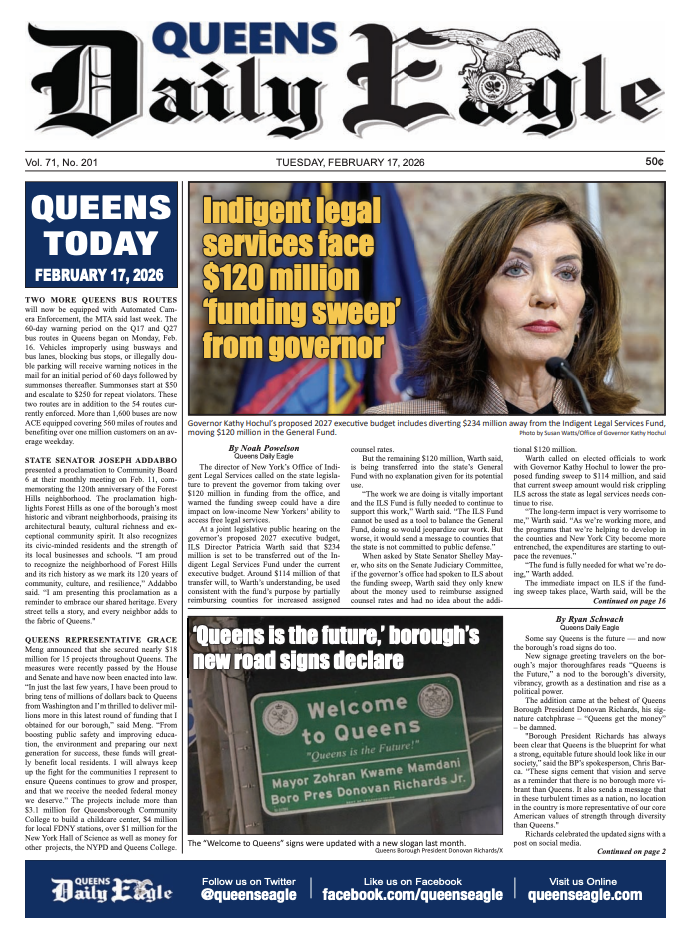Civil Court candidate runs to become Queens’ first openly gay judge
/Michael Goldman is running for Queens Civil Court judge. Photo Courtesy of Goldman
By Rachel Vick
Queens judicial candidate Michael Goldman has spent more than 25 years practicing law, embracing a methodology focused on logic but rooted in humanity. If he wins a seat on the bench, he will become the first openly gay man to serve on the bench in Queens history.
The Bayside native said he would draw on his lifetime of working in various parts of the legal profession. He has spent time at private law firms and serving as a court attorney and principal law clerk for judge in Queens Civil and Supreme Court.
Goldman said he was drawn to “the focus on logic, on making reasonable well thought out decisions based on the law, but [brings an] understanding that every person who stands in front of the court is a human — not just index numbers, but people with real problems and real concerns.”
“Every person who comes before the court must be treated with dignity and respect,” he added.
Goldman, who co-chairs the Queens County Bar Association’s LGBTQ+ Committee, said his approach to the profession is shaped by the notion that the law can change lives for better or for worse.
“Any challenge you face is like a puzzle to be solved, and perspective is a very good place to start when analyzing,” he said.
He said he was inspired to enter the legal field by the parent of a childhood friend, but his first foray into the professional world was marred by homophobia. He said he was fired from the Miami firm where he began his career after they found out he was gay.
The way the laws were set up, he had no legal recourse. The experience “was devastating at the time,” Goldman said.
“Getting from there to here, where I’m running to be a judge as an openly gay man,” Goldman said. “There were times in my life where this didn't seem like a possibility.”
Born less than a year after the Stonewall protest, Goldman said his life was shaped by the advancement of LGBTQ rights, often with the help of landmark court cases. Being gay was a crime in his formative years, he noted, but the country has evolved with major milestones occurring in recent year. “It has been incredible and uplifting watching the progress,” Goldman said.
He said his candidacy for a judgeship serves as a symbol of how far the LGBTQ rights movement has come.
When the New York made same-sex marriage legal in 2011, Goldman joined the celebrations outside the Stonewall Inn. When the law took effect a month later, he spent the day, June 24, 2011, at Queens Borough Hall, performing marriage ceremonies that some couples had waited decades for.
“It’s gratifying how much progress has been made on LGBT rights during my lifetime — to get from [Stonewall] to here in 50 years, which is a short time in the long perspective of history, it feels like a bit of a miracle,” Goldman said. “That is the power of judges, of the law and of logical reasoning in deciding a case and how your decision impacts real people and real situations.”
He hopes to inspire the next generation of lawyers and judges the way he was guided by “lifelong mentor” Judge Joel Blumenfeld and the late Paul Feinman, the first openly gay man to serve on the Court of Appeals. Feinman died Wednesday.
“I want to follow in their footsteps and be an inspiration to those who come after me, especially young LGBT people who may feel that they don't have a path, Goldman said. “But they need to know that they do — I want to stand as an example.”




